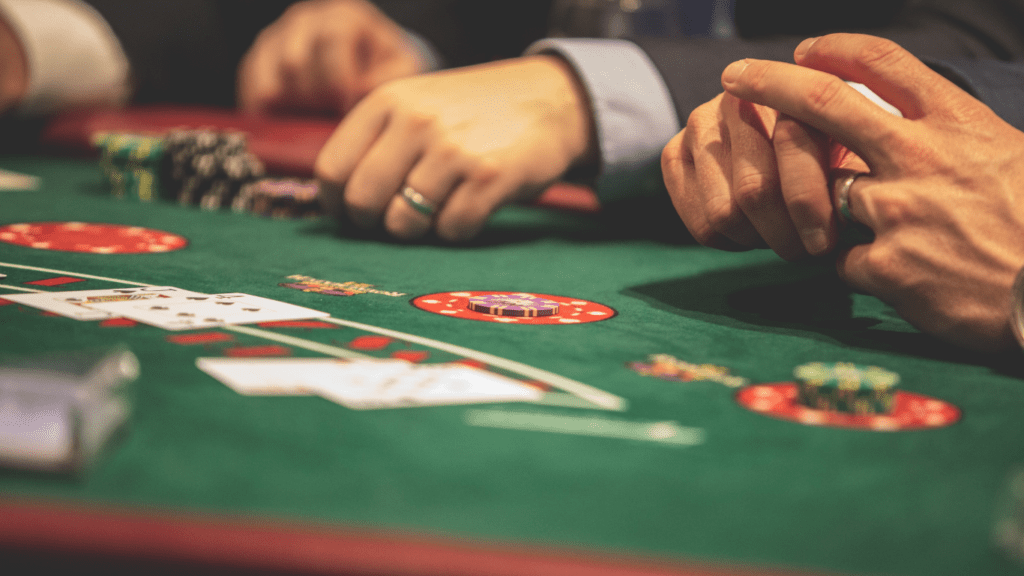Understanding Responsible Gambling
Responsible gambling involves making informed decisions about gambling activities. It’s crucial to recognize that gambling is a form of entertainment, not a way to make money. By understanding the principles of responsible gambling, players can enjoy the experience without adverse effects on their lives.
Setting Limits
Setting limits helps maintain control over gambling activities. Decide on a budget before starting and stick to it. For example, if planning to gamble $50 for the week, do not exceed that amount regardless of wins or losses. Time limits are equally important, such as deciding to play for one hour per session. This practice prevents overindulgence and keeps the activity enjoyable.
Knowing The Risks
Every gambling activity comes with inherent risks. Understanding these risks, such as the house edge and the possibility of losing money, is essential. When aware of the potential downsides, players can make better choices. For instance, in slot machines, the house edge might be higher than in card games, allowing for more strategic decisions on where to spend money.
Avoiding Chasing Losses
Chasing losses often leads to more losses. It’s essential to accept losses as part of the game rather than trying to recoup them immediately. For example, if losing $20 in one session, do not spend another $20 trying to win it back. Taking breaks and reflecting on the losses helps maintain a clear mind and sound strategy.
Seeking Help When Needed

Recognizing when gambling starts affecting daily life and seeking help is vital. Various organizations offer support for those struggling with gambling issues. For instance, the National Problem Gambling Helpline (1-800-522-4700) provides confidential assistance and resources. By seeking help early, individuals can avoid severe consequences and regain control over their gambling habits.
Setting Limits
Responsible gambling centers around maintaining control over both your time and finances. Setting appropriate limits can prevent potential gambling-related issues.
Financial Limits
Establishing financial limits is crucial. Determine a fixed budget for your gambling activities. Make sure this amount is money you can afford to lose without affecting your essential expenses. For example, you might decide to use only $50 per week for gambling. Avoid borrowing money to continue gambling and never dip into funds allocated for bills or savings.
Time Limits
Setting time limits helps maintain balance in your daily life. Decide in advance how many hours you’ll spend gambling. For instance, you could set a rule to gamble no more than two hours per week. Adhering to this limit prevents gambling from interfering with your responsibilities, such as work, family, or social engagements.
By managing both financial and time limits, you can enjoy gambling as a form of entertainment while minimizing risks.
Recognizing Warning Signs
Identifying early warning signs can be crucial to maintaining safe gambling habits. Addressing these signs promptly assures responsible gambling.
Emotional Signs
- Anxiety or Depression: Constant anxiety or depression may signal a problem. If I start feeling overwhelmed or distressed, it’s time to reassess my gambling habits.
- Irritability: Feeling irritable when not gambling can indicate dependency. I need to notice if my mood worsens when I’m not engaged in gambling activities.
- Isolation: Choosing gambling over social activities might be a red flag. If I find myself avoiding friends and family, it’s essential to consider my gambling behavior.
Behavioral Signs
- Increased Spending: Consistently spending more than planned is a warning sign. I should track my expenses and stick to my budget.
- Lying: Hiding gambling activities or lying about losses suggests a problem. Honesty with myself and others is crucial.
- Neglecting Responsibilities: Ignoring work or personal responsibilities to gamble is dangerous. I need to prioritize my obligations over gambling.
Recognizing these signs early helps keep gambling as a fun and controlled activity.
Practical Tips for Safe Gambling
Gambling responsibly involves several practical steps to ensure it remains an enjoyable activity. The following tips focus on key areas to help maintain control and promote safe gambling habits.
Choosing the Right Platform
Selecting a reputable gambling platform is essential for a safe experience. Verify the platform’s licensing by checking for certifications from recognized authorities like the UK Gambling Commission or the Malta Gaming Authority. Look for security measures such as SSL encryption to protect your personal and financial information. Read reviews from other users to gauge the platform’s reliability and customer service. Additionally, prioritize platforms that offer self-exclusion tools and deposit limits, as these features can help manage gambling habits effectively.
Taking Regular Breaks
Incorporating regular breaks into your gambling routine can prevent burnout and maintain perspective. Set a timer every hour to remind you to step away from the screen. Use these breaks to engage in other activities like going for a walk, having a snack, or socializing with friends. Regular intervals help reduce the risk of compulsive behavior. If you find it difficult to take breaks, consider setting strict time limits for each gambling session. This practice ensures you maintain balanced habits and avoid excessive gambling.
Seeking Support if Needed
If gambling starts impacting your life negatively, seeking support is crucial. Contact professional organizations like the National Council on Problem Gambling (NCPG) for resources and guidance. Consider talking to a counselor who specializes in gambling addiction for personalized support. Joining a support group can provide a community of individuals facing similar challenges, offering encouragement and practical advice. The sooner you seek help, the better your chances of regaining control over your gambling activities.
By implementing these practical tips, you can enjoy gambling responsibly and mitigate the risk of developing unhealthy habits.
The Importance of Self-Exclusion
Self-exclusion offers a practical way to control gambling habits and prevent addiction. It’s a strategy provided by many reputable gambling platforms allowing individuals to voluntarily exclude themselves from gambling services for a specified period. This time frame can range from a few months to several years.
Self-exclusion helps create a barrier between individuals and their habitual gambling. When used effectively, it temporarily restricts access to online betting accounts, casino memberships, and other gambling outlets. This measure can be crucial for those who feel they’re losing control over their gambling activities.
Self-exclusion not only provides a cooling-off period but also serves as a wake-up call. It helps individuals reassess their relationship with gambling and take necessary steps towards healthier behavior. Many platforms require users to submit a formal request and prohibit account reactivation until the exclusion period ends, adding an extra level of accountability.
Utilizing self-exclusion tools can significantly reduce impulsive betting. Instant blocking of gambling sites ensures an individual’s commitment to stopping or reducing their gambling activities. Tools like GAMSTOP in the UK or self-exclusion programs in various states in the US can be particularly effective.
Reputable gambling platforms often integrate self-exclusion options within their responsible gambling policies. They also provide resources and support to those who opt for self-exclusion. Individuals can connect with professional counseling services and financial advisors, offering a holistic approach to managing gambling habits responsibly.
Consistently practicing self-exclusion demonstrates strong personal resolve. It’s a testament to taking control of one’s gambling habits and making responsible choices for a healthier lifestyle. By integrating self-exclusion as part of a broader strategy, individuals can enjoy gambling activities safely without jeopardizing their financial or emotional well-being.



 Elizabeth Kaylor – Author
Elizabeth Kaylor is an experienced author and contributor at Smart Gamble Land. Specializing in casino game mastery and player psychology, Elizabeth provides readers with in-depth tips on how to approach popular casino games with confidence and precision. Her expertise in understanding player behavior, game dynamics, and strategy allows her to craft engaging content that appeals to both novice and experienced gamblers alike. Elizabeth's insightful articles offer readers the tools they need to thrive in high-stakes environments.
Elizabeth Kaylor – Author
Elizabeth Kaylor is an experienced author and contributor at Smart Gamble Land. Specializing in casino game mastery and player psychology, Elizabeth provides readers with in-depth tips on how to approach popular casino games with confidence and precision. Her expertise in understanding player behavior, game dynamics, and strategy allows her to craft engaging content that appeals to both novice and experienced gamblers alike. Elizabeth's insightful articles offer readers the tools they need to thrive in high-stakes environments.
